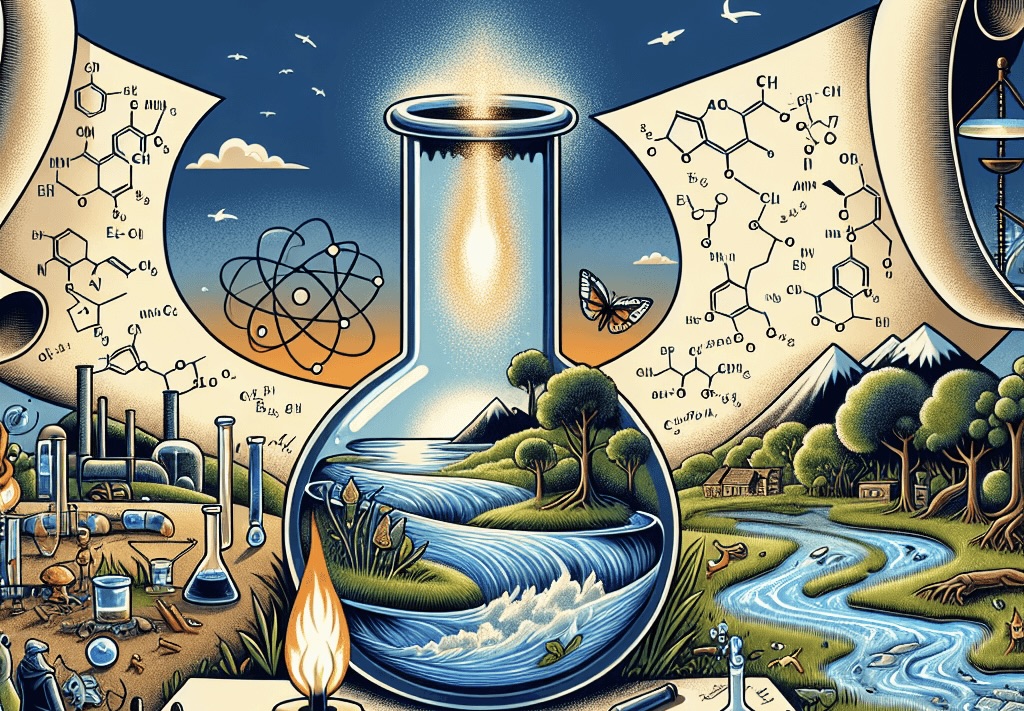
In the face of escalating environmental crises, how can the global research community accelerate solutions for sustainability? Our planet’s health hinges on the seamless collaboration of scientists, policymakers, and citizens—but too often, research is siloed, slowing progress. Open science emerges as a beacon of hope, promising a future where knowledge is shared freely and innovation thrives.
Embracing Collaboration for a Greener Future
The open science movement emerges as a promising force poised to transform environmental research and contribute to a sustainable future. Its emphasis on transparent research methodologies and the encouragement of data sharing goes beyond being a conceptual framework; it is a practical approach that significantly influences the advancement of our comprehension of intricate environmental challenges.
By fostering collaboration and dismantling traditional silos, open science creates a dynamic ecosystem where researchers worldwide can collectively address pressing environmental issues. The movement’s commitment to transparency ensures that research processes are accessible and understandable, promoting trust and credibility in the scientific community.
Open science not only enhances our understanding of environmental issues but also serves as a catalyst for innovative solutions. The collaborative nature of open science allows for the pooling of diverse expertise and resources, accelerating the development and application of sustainable practices.
Understanding Open Science and Its Principles
Open science is a transformative approach aimed at breaking down obstacles to knowledge dissemination. At its essence, it fosters a global network of researchers who can seamlessly exchange information, collaborate, and collectively address urgent environmental challenges. The foundational principles of open science revolve around accessibility, transparency, and inclusive collaboration that transcends the boundaries of conventional research institutions.
Accessibility is a cornerstone, ensuring that scientific findings, data, and methodologies are readily available to the broader public. Transparent practices, such as openly sharing research processes and outcomes, build trust and facilitate scrutiny. Collaboration takes center stage as researchers collaborate within their institutions and globally, pooling resources and expertise to tackle complex issues.
Open science represents a paradigm shift, acknowledging that the collective intelligence of a global community can propel scientific progress. By embracing these principles, open science strives to accelerate the pace of discovery, enhance reproducibility, and amplify the impact of research on the multifaceted challenges facing our world.
Accelerating Research and Innovation
One of the most significant ways open science contributes to environmental sustainability is through the acceleration of research and innovation. By making scientific data openly available, researchers can benefit from a wealth of information without duplication of effort or resources.
For example, consider the field of climate change. Climate models and impact studies made available through open science initiatives allow researchers worldwide to predict changes, assess risks, and develop strategies to mitigate the effects of global warming. This collaborative approach unifies the scientific community’s efforts, leading to more comprehensive and robust solutions.
Enhancing Transparency and Reproducibility
Transparent research methodologies are a cornerstone of open science, ensuring that experiments and studies can be replicated and verified by other scientists. This builds a foundation of trust and reliability in environmental research, which is critical when it comes to influencing policy and ensuring that decisions are based on accurate and repeatable scientific evidence.
Think about the impact of pollution on ecosystems; through open science, studies detailing the effects of contaminants on water and soil can be scrutinized and reproduced, ensuring that the consequences are well understood and that measures to address them are properly informed by solid scientific understanding.
Fostering Global Collaboration
Environmental challenges do not respect national borders. Thus, the global collaboration enabled by open science is essential in addressing sustainability issues that are inherently international in scale. By bringing together diverse perspectives and expertise, open science facilitates the development of holistic strategies that are sensitive to the unique ecological and socio-economic contexts of different regions.
For instance, when tackling biodiversity loss, researchers from around the world can share data on species decline and collaborate on conservation efforts through open-access repositories and platforms. This helps to create a shared understanding of the issue and enables coordinated actions that can have a real impact on preserving the planet’s biodiversity.
Rethinking Intellectual Property and Incentives
The open science model also encourages a re-evaluation of traditional notions of intellectual property and the incentives driving scientific research. When the ultimate goal is sustainability and the common good, the focus shifts from achieving personal or institutional gain to fostering societal benefits and environmental well-being.
This can lead to more altruistic research endeavors where the success of a project is measured by its contribution to sustainable development and the collective understanding of environmental science.
As we strive for a sustainable future, the principles of open science offer a promising path forward. By making environmental research more accessible, transparent, and collaborative, open science ensures that the knowledge generated serves the global community and the environment we all share. With each shared dataset, every open-access paper, and all collaborative projects, we inch closer to a world where informed decisions and sustainable practices are the norms, not the exceptions.
In a world that is increasingly digital and connected, open science leverages technology to its advantage, aiming to surpass geographical and economic barriers that have traditionally hampered scientific advancements. It presents a model of inclusivity, where researchers, regardless of their location or the size of their institution’s budget, can contribute to and benefit from the collective knowledge pool.
As environmental issues continue to pose pressing challenges, the integration of open science practices in research and policy-making can lead to more effective and equitable solutions. It is a movement that holds the key to unlocking the potential for a more sustainable global community. The intersection of open science and environmental sustainability is where we can witness the synergy that can ultimately lead to the preservation and healing of our planet.